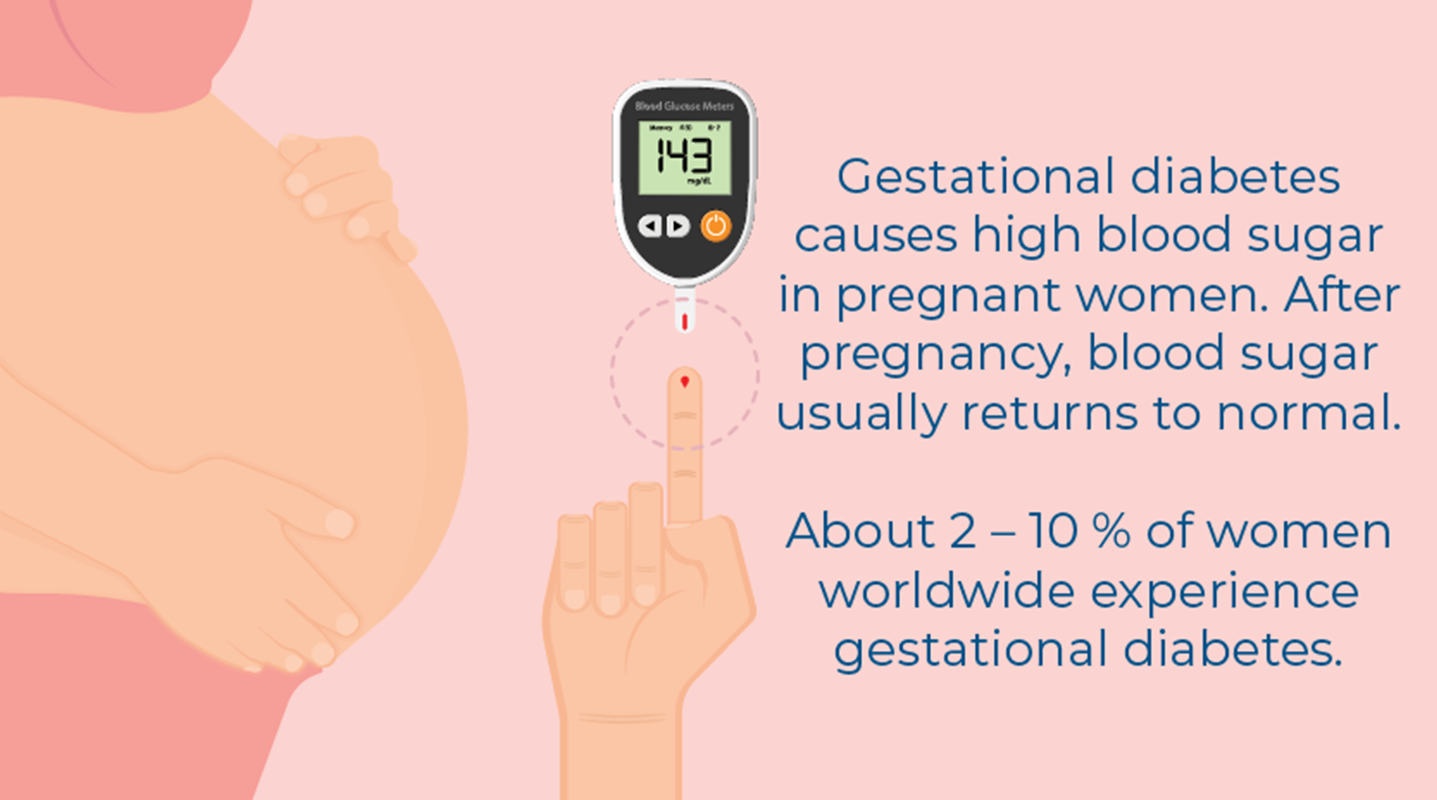Managing Gestational Diabetes
November 22, 2021

In 2020, approximately 3.6 million women gave birth in the United States. Out of that number, 2% to 10% of those women were affected by gestational diabetes (a type of diabetes diagnosed for the first time during pregnancy). This blog posts provides tips on how to reduce your risk of contracting the disease during pregnancy and how to manage it if you've been diagnosed.
Gestational diabetes can increase the risk of:
- Abnormalities in the developing baby’s heart
- Birth injury (for both vaginal and Cesarean births)
- Breathing trouble in babies right after birth
- Cesarean (C-section) birth
- Elevated amniotic fluid (polyhydramnios)
- Excessive birth weight
- Low blood sugar in babies right after birth
- Preterm birth or stillbirth
These problems are less likely to occur if your gestational diabetes is treated and your glucose levels are in the target range. Keep in mind, treatment can reduce, but not eliminate, these risks for the baby.
Risk Factors for Gestational Diabetes
Advancing maternal age and multiple births are two of the most common risk factors for gestational diabetes. The infographic below lists additional risk factors that have been known to cause this condition.
5 Tips for Managing Gestational Diabetes
Fortunately, you can manage gestational diabetes to protect yourself and your baby by following these five tips.






Advice from Our Maternal-Fetal Medicine Specialist
We asked Laurie Scott, MD, medical director, Maternal-Fetal Medicine Program at Memorial Healthcare System, her thoughts on gestational diabetes and she recommends the following postpartum advice for moms.
- It's very important to get a follow-up glucose tolerance test about six weeks after delivery to confirm the diabetes has resolved.
- Get checked early in any future pregnancy (ideally in the first trimester or just before getting pregnant) and followed closely when not pregnant with diabetes tests every one to two years due to the high risk for diabetes development later in life.
- Continue good eating and exercise habits adopted during pregnancy.
- Women should try to lose weight after pregnancy to get back to an “ideal body weight” (i.e., BMI between 18-24.9).
- Minimizing simple carbohydrates, like bagels, pasta, and white rice.
- Continue aerobic and strengthening exercises.
- Avoid gaining weight to help delay or prevent later development of diabetes, as well as obesity and hypertension and heart disease.
As an aside, some women who start a diabetic type diet while pregnant may initially lose a few pounds as their eating habits become healthier. This is not risky to the baby and indicates that their glucose and metabolism may be coming more into balance.
If you have gestational diabetes, the team at Memorial Family Birthplace can help you manage your condition and have a healthy pregnancy and birth.
Susan Davila, MD, OB/GYN at Memorial Healthcare System, and her team helped me learn how to take my blood sugar and how to eat in a healthy way so I could manage my gestational diabetes without medicines. It’s important for moms not to stress or feel guilty if they have gestational diabetes. It’s an opportunity for a healthier pregnancy with the support of a great care team.


